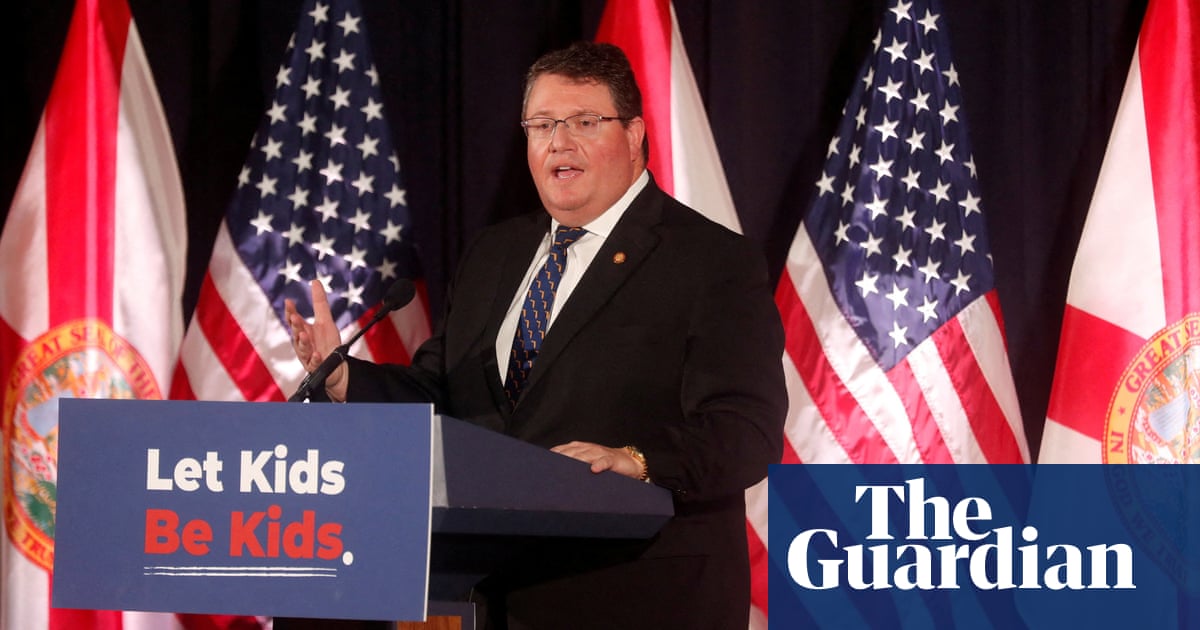The defining feature of American democracy, you could be forgiven for having thought, is that you can say what you think without having to fear that you will be arrested, locked up or deported for it.
The United States isn’t unique in its commitment to this idea, but this country has taken it unusually seriously. No law has been repudiated as decisively by the US supreme court as the Sedition Act of 1798, which made it a crime to publish false or scandalous criticism of government officials.
American newspapers, unlike their counterparts in most other nations, can print governmental secrets without fear that the security services will ransack their newsrooms. The first amendment has been understood to protect a very broad range of political speech, including, importantly, by immigrants. As a consequence of all of this, there are – or there were, until very recently – many things one could say in New York that one couldn’t say in Istanbul or Mumbai, or even in Berlin or London.
The Trump administration’s roundup of students who protested Israel’s bombardment of Gaza marks an astonishing, radical break with what one might justifiably think of as the central American idea. Immigration agents force a PhD student into an unmarked van in Somerville, Massachusetts, arrest a recent grad in front of his eight-months-pregnant wife in the lobby of a Columbia University-owned building in New York City, seize a Georgetown University postdoc from his home in Washington DC – all, it seems, for their lawful political speech. These are the kinds of scenes we expect to see in the world’s most repressive regimes; it’s genuinely shocking to see them unfolding here.
Thus far the arrests haven’t generated widespread outrage in the United States, perhaps because the students are foreign, or because pro-Palestinian protesters have been vilified by both major political parties, many universities and much of the media.
But an administration that imprisons and expels foreign students for their pro-Palestinian advocacy is unlikely to stop with foreign students or, for that matter, with pro-Palestinian advocacy. Trump’s student roundup has already progressed from visa holders to legal permanent residents, and administration officials have said they intend to come after naturalized citizens as well. And the argument the administration is advancing to justify the cancellation of students’ visas – that the students’ advocacy undermines US foreign policy – could as easily be made with respect to those who advocate in support of any other cause the Trump administration happens to disfavor.
The arrests of pro-Palestinian students have already caused immense damage to this democracy. It’s difficult to convey how profoundly these arrests have transformed American universities in just a few weeks. In a legal complaint filed earlier this week, professors describe a “climate of fear and repression” on university campuses across the United States, with international faculty and students stepping back from groups that engage in political advocacy, forgoing opportunities to publish their work, scrubbing their webpages of references that immigration authorities might find provocative, and no longer engaging with political topics on social media or even in private texts. (The case was filed by the American Association of University Professors and the Middle East Studies Association; the Knight First Amendment Institute, which I direct, is counsel.) Many international students and faculty are genuinely terrified that masked government agents might show up on their doorsteps at any moment.
All of this is likely to get worse. The arrests of student protesters are just one manifestation of the Trump administration’s broader campaign against democratic institutions and freedoms. As students are being disappeared into Ice’s detention centers, Trump is speedrunning the rest of the authoritarian playbook – threatening the media, extorting universities, imposing sanctions on lawyers whom the president perceives to be his political enemies, and intimidating judges. If he continues on this path without encountering more resistance than he’s encountered thus far, full-fledged authoritarianism is just around the corner.
And yet it may be the arrests of protesters that pose the gravest threat to our fast-fading democracy. Protest has been the engine of social change in this country for many decades, and it is difficult to envision any way for Americans to reclaim their democracy now that doesn’t involve millions of people taking to the streets. The arrests of student dissidents are a warning to anyone who might be tempted to try it. If we can do this to them, we can do it to you too, and we will.
The students are being persecuted for exercising a right that all of us need now more than ever. Come to their defense for this reason, if for no other.
-
Jameel Jaffer is the director of the Knight First Amendment Institute at Columbia University and a former deputy legal director of the ACLU

 German (DE)
German (DE)  English (US)
English (US)  Spanish (ES)
Spanish (ES)  French (FR)
French (FR)  Hindi (IN)
Hindi (IN)  Italian (IT)
Italian (IT)  Russian (RU)
Russian (RU)  1 day ago
1 day ago
























Comments